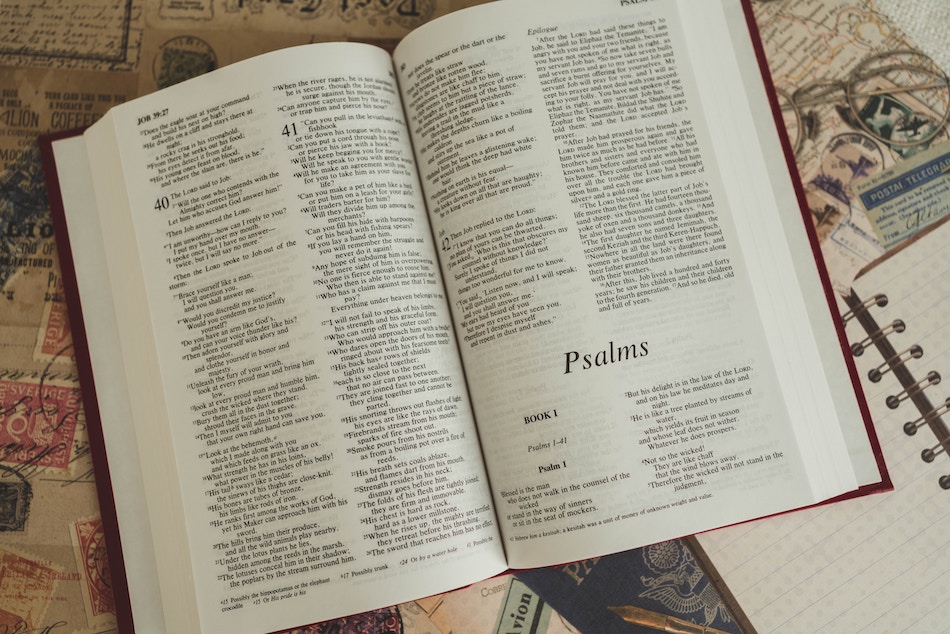This article was republished with permission from Lifeway Research.
Psalms seems to be a favorite book of the Bible, and it’s easy to see why. Psalms help us express every emotion we may have as believers who live in a broken world. This famous book located in the center of the Bible helps us express joy and gratitude. It gives us permission to grieve and lament. It draws us to worship in all circumstances.
I’ve read the Psalms a lot this year through highs and lows. We celebrated the births of friends’ children and my brother’s engagement. But we also grieved over various expressions of sin and brokenness in the lives of others. Through the joy of our daughter’s birth, the disappointment of job loss, the uncertainty of family illness, and everything in between, three themes in Psalms have stood out to me: remember, have joy, and rest in the Lord.
If you’re in vocational ministry, you experience all kinds of seasons—often at once. Perhaps you’ve been enjoying a season of abundance. Your church is growing and making disciples. Maybe you’re experiencing unfair criticism and feel like you can’t live up to your church members’ expectations. Or maybe you’ve had a front row seat to the brokenness in a church member’s life or experienced the death of a loved one.
Regardless, Psalms helps us to remember, rest, and have joy.
1. Remember
The psalms are replete with memories of God’s faithfulness to his people. Psalm 78 recounts how God rescued the Israelites from Egypt and brought them into the Promised Land. It also tells of the perils of forgetting God—how He punished the Israelites for grumbling against Him as they repeatedly forgot how God had delivered them. When King David was in distress, he didn’t hesitate to express his despair to God. But he also remembered the Lord is on His throne and took refuge in God, praising the Lord even amid trials (Psalm 9, 22).
The writer of Psalm 42 did likewise, writing in verses 5-8:
Why, my soul, are you so dejected? Why are you in such turmoil? Put your hope in God, for I will still praise him, my Savior and my God. I am deeply depressed; therefore I remember you from the land of Jordan and the peaks of Hermon, from Mount Mizar. Deep calls to deep in the roar of your waterfalls; all your breakers and your billows have swept over me. The Lord will send his faithful love by day; his song will be with me in the night— a prayer to the God of my life.”
These examples, along with many other Psalms, encourage us to remember God’s faithfulness to us—to dwell on the Lord’s provision.
We also remember that because of Christ, we want for nothing. We have everything we need in our salvation. We praise the Lord for all He has done (Psalm 103).
2. Rest
When we remember God and dwell on His characteristics as described in Psalms, we can rest knowing God is with us.
At the end of Psalm 4, David wrote,
I will both lie down and sleep in peace, for you alone, Lord, make me live in safety.”
When we sleep, we demonstrate trust that God is watching over us even when we’re in our most vulnerable state. But rest is more than just sleeping. It’s an indwelling peace that comes from knowing God and being known by Him. It’s confidence in His constant presence, knowing He’s our only hope (Psalm 62:5). The same God who delivered Israel, who rescued David, and who kept all of His promises to His people is the same God who’s near to us today.
God never changes. He’ll keep all of His promises to us too. We can rest in that truth, knowing any circumstance in which we may find ourselves is temporary. We look forward to the day when He fulfills His promise to dwell with His people forever.
3. Joy
Remembering God’s faithfulness and resting in His sovereignty allows us to worship and have joy. The psalmists weren’t afraid to express their fear, depression, and feelings of despair. But even when they lamented, mourned, and asked questions, they frequently ended those same passages with joy as they remembered God.
When Saul’s men were pursuing David, he wrote Psalm 59, asking God to rescue him. But even in this precarious situation, David rejoiced, writing:
But I will sing of your strength and will joyfully proclaim your faithful love in the morning. For you have been a stronghold for me, a refuge in my day of trouble. To you, my strength, I sing praises, because God is my stronghold— my faithful God.”
Like David, we can rejoice in the face of anything because we know that one day, all will pass away, and we’ll dwell with the Lord forever (Psalm 16:11).
Psalms helps us express ourselves to the Lord. The book is filled with words to pray and songs to sing. It reminds us we can lament and express our grief to God. The psalms remind us to remember the God who is the beginning and end of all things, to rest in His sovereignty, and to have joy in all circumstances.





